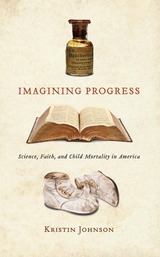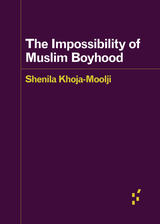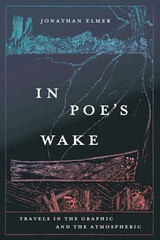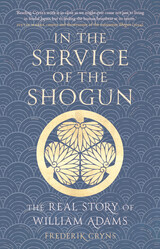3 start with N start with N

In this definitive study, Warren E. Miller and J. Merrill Shanks present a comprehensive, authoritative analysis of American voting patterns from 1952 through the early 1990s, with special emphasis on the 1992 election, based on data collected by the National Election Studies. For example, Miller and Shanks reveal that:
The loudly trumpeted "dealignment" of the 1970s and 1980s, along with the decline in voter turnout, was in fact an acute "nonalignment" and noninvolvement of new cohorts entering the electorate.
The social correlates of the Republican/Democratic divisions on party identification among Southern voters have changed dramatically over a forty-year period.
Enduring cultural and ideological predispositions play a major role in shaping voters' reactions to election campaigns and their choice for President.
Personalities of presidential candidates and their positions on campaign issues tend to matter far less than is often claimed.
Perot's appeal in 1992 can be attributed to the same factors that distinguished between supporters of Clinton and Bush.
In an unprecedented analysis of individual elections and long-term trends, and of changes within regions, ethnic groups, and gender and age categories, The New American Voter presents a unique social and economic picture of partisanship and participation in the American electoral process. This work is likely to become an instant classic.

Contrary to received wisdom, this book shows that most citizens cast blank or spoiled votes in presidential elections on purpose. By participating in invalid vote campaigns, citizens can voice their concerns about low-quality candidates while also expressing a preference for high-quality democracy. Campaigns promoting blank and spoiled votes come about more often, and succeed at higher rates, when incumbent politicians undermine the quality of elections. Surprisingly, invalid vote campaigns can shore up the quality of democracy in the short term. None of the Above shows that swings in blank and spoiled vote rates can serve as a warning about the trajectory of a country’s democracy.
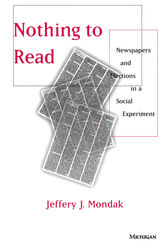
Nothing to Read compares the information gathering and voting behavior of residents in Pittsburgh and Cleveland during the 1992 campaign season. Comparable in demographics and political behavior, the only significant difference between the two cities was the availability of local newspapers. Using a research design that combines elements of the opinion survey and the laboratory experiment, the author exploited this situation to produce an unusually sound and thorough examination of media effects on voters.
The results are startling. First and foremost, Nothing to Read reasserts the role of the newspaper in the dissemination of information acquisition. It is the only media source that can rival television in the electoral arena, and it is often more important to voters as a source for local information, including information about U.S. House races. Nothing to Read also shows that voters are more active in seeking out information than typically postulated. Indeed, many voters even differentiate between media sources for information about Senate and House contests and sources for the presidential campaign. Within limits, the electorate is clearly not a passive news audience. Nothing to Read provides a wealth of information on such related topics as the relationship between partisanship and media influence, the interplay between media exposure and interpersonal political conversations and other social interaction, and newspapers' effect on coattail voting. A unique book, Mondak's important study lays a solid foundation for all future work on the relationship between American media and politics.
Jeffery J. Mondak is Associate Professor of Political Science, University of Pittsburgh.
READERS
Browse our collection.
PUBLISHERS
See BiblioVault's publisher services.
STUDENT SERVICES
Files for college accessibility offices.
UChicago Accessibility Resources
home | accessibility | search | about | contact us
BiblioVault ® 2001 - 2024
The University of Chicago Press


